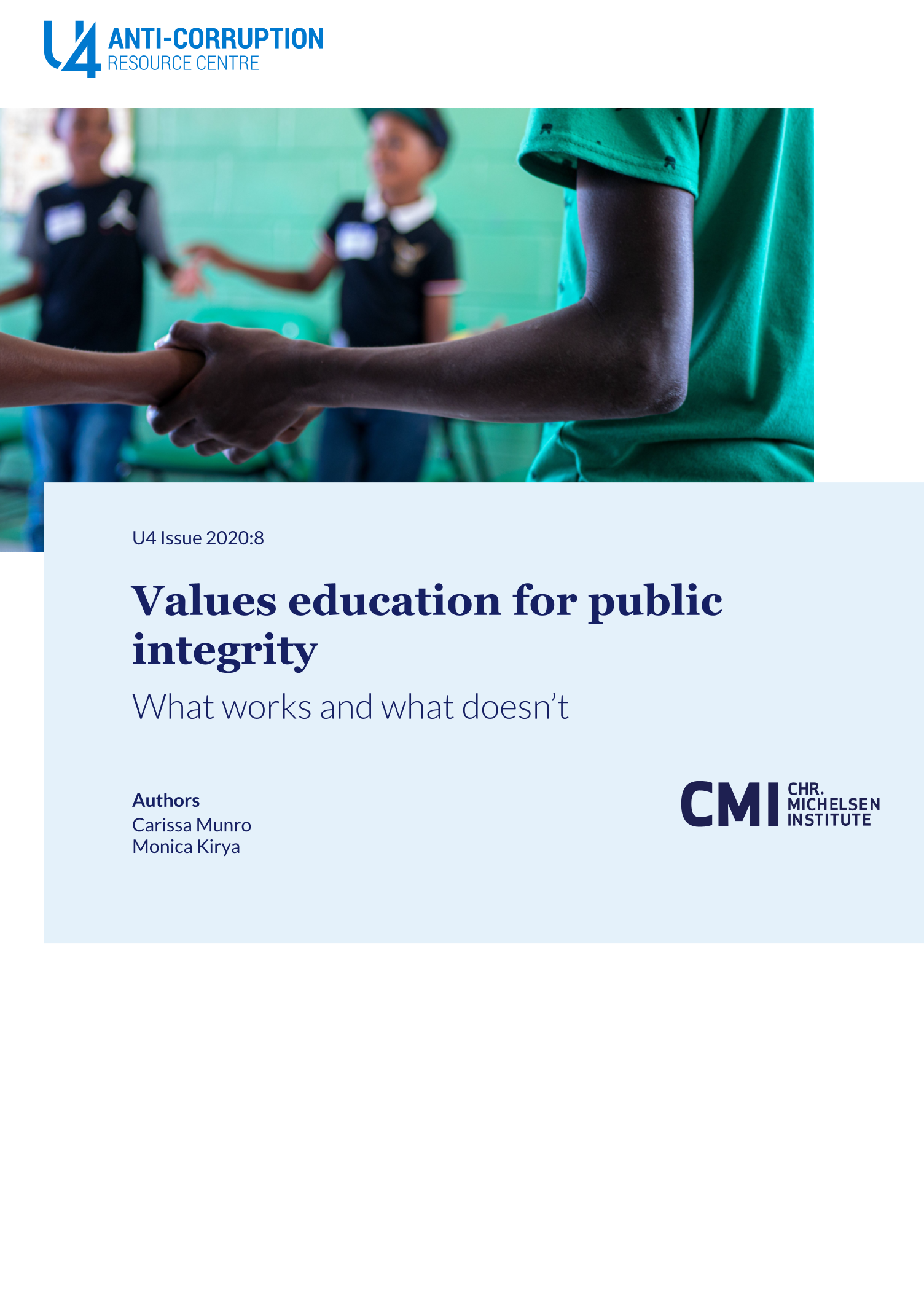Main points
- Social norms and values such as honesty, fairness, accountability, transparency, and integrity are critical in preventing corruption. Schools and universities have crucial roles to play in teaching these norms and values to youth to prepare them for adult life.
- At primary-secondary level, integrity education can be integrated into the core curriculum, added as an extracurricular component, conducted as a schoolwide event, or delivered through technology applications. Universities may offer ethics education as part of undergraduate and post-graduate degree programmes or through conferences, guest lectures, internships, and debates.
- There is limited evidence as to which pedagogical methods may work best, but participatory, hands-on activities and case-based learning show promise. Experiences in various countries point to some best practices, including a gradual approach to curriculum design that includes all stakeholders; a cross-curricular approach; effective teacher training; and an open school and classroom environment.
- Donors supporting human rights and citizenship education in schools can advocate for the inclusion of ethics, integrity, and anti-corruption principles. They can support monitoring and evaluation systems to build an evidence base on what works in public integrity education. Multilateral institutions can work together to promote the harmonisation of ethical standards and curricula across countries.
- Other actors with important roles to play include education ministries, curriculum development agencies, higher education councils, national anti-corruption commissions, private business, civil society organisations, professional associations, and regulatory councils in fields such as medicine and law.


